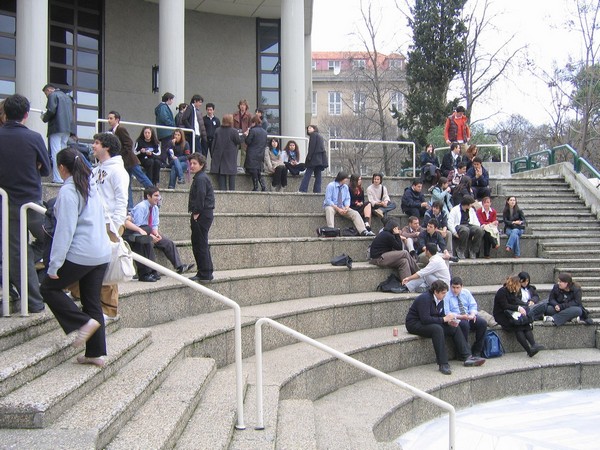On pandemic 'learning loss,' schools look forward, not back
“It is time they lost that maybe, at some point, we can't get back.” To measure learning loss on a large scale, researchers need recent test results from across districts, but consistent data will be hard to come by. States canceled their annual exams last spring at the start of the pandemic, and most are letting districts decide whether and how to test this fall.

- Country:
- United Kingdom
A complete picture has yet to emerge of how much learning was lost by students during the pandemic. That's all right with educators like Superintendent Craig Broeren, whose top concern is figuring out where each student stands now. Wisconsin Rapids, his small school district in central Wisconsin, isn't administering any special test to measure how much districtwide progress stalled after classrooms closed in March. Such data wouldn't capture a student's unique circumstances or point a way forward, Broeren said.
Instead, the district is sticking with its usual fall assessments. Those tests can roughly estimate learning loss since the spring, but leaders say they are most useful for pinpointing what students know now and tracking how much they learn. “Frankly, what we lost is less of an issue than where a kid is starting from,” Broeren said, “and using that to inform instruction.” That approach is the norm nationwide. Most states aren't requiring all districts to administer uniform tests to measure students' slippage. Rather, districts generally are using the tests they give each fall to guide instruction for the school year and, in many cases, also assessing students' mental health and well-being -- an approach favoured by many experts and educators who say a rush to quantify learning loss could demoralize students and teachers.
But as many schools continue distance learning or brace for more virus-related closures that could further slow progress, the patchwork approach to testing this fall worries some advocates and policymakers who say it's difficult to plan academic recovery this year without consistent data across districts and states. “We're in this data black hole,” said Kyle Rosenkrans, executive director of the New Jersey Children's Foundation, an advocacy group that plans to hire researchers to estimate how much students have fallen behind.
“You can't prescribe solutions unless you have a sound diagnosis of the scale of the problem.” Using data from past school closures, researchers have estimated some students might have lost several months to a year's worth of academic growth after school buildings around the country closed last March. Some policymakers say data is needed urgently to support districts with the largest gaps or plan more drastic statewide responses, such as extending the school year.
Among those calling for a more aggressive effort to measure that loss is New Jersey Sen. M. Teresa Ruiz, a Democrat who co-sponsored a bill to require testing to assess academic and social-emotional needs and to require the state to analyse the results. New Jersey offered new diagnostic tests to help districts identify students needing extra support, but those aren't designed to measure statewide trends, and most of its districts are already using other assessments.
“The fact that it's optional and they're not requiring the data to go back to them, it just misses the whole intent of what is critically needed,” Ruiz said. “We need to know what has happened during this pandemic.” Some places are starting to get a partial glimpse of the pandemic's academic toll. Idaho, which requires grades K-3 to take a fall reading test, found an overall decline in reading skills. And the Washington, D.C., school system likewise discovered a significant drop in the share of young pupils meeting reading targets. Many educators have braced for such results. Yvette Gonzalez, a fashion design teacher at a high school in El Paso, Texas, said many of her students have had to take on jobs or care for siblings during the pandemic.
“When they're constantly thinking about COVID and how to survive on a day-to-day basis, a lot of them are not worried about how they're going to finish their work,” she said. In Newark, New Jersey, teacher Wirmarie Morales said her own son, a high school senior, worries he'll have to take remedial classes in college to make up for material he missed. And her fourth-grade bilingual students appeared to start this school year with less confidence and fluency in English than usual.
“They don't know basic, simple things that they would normally know,” she said. “It is time they lost that maybe, at some point, we can't get back.” To measure learning loss on a large scale, researchers need recent test results from across districts, but consistent data will be hard to come by.
States canceled their annual exams last spring at the start of the pandemic, and most are letting districts decide whether and how to test this fall. Few states appear to be collecting the results of those tests. “It's information that everybody wants to have,” said Daniel Domenech, executive director of AASA, the School Superintendents Association. “But, right now, the priority is focusing on kids' needs.” Educators highlight other arguments for avoiding wide-scale testing this fall.
They worry it could lead to a focus on reviewing past topics, at the expense of teaching new material. Students who faced hardships in the spring or couldn't access online classes might be misidentified as academically challenged. And testing could eat up instructional time and put more pressure on students already stressed by the pandemic. Parents and educators in Portland, Oregon, cited such concerns in opposing planned diagnostic testing, which the district suspended to focus instead on “engagement and instruction.” Teachers also raised concerns that having students take tests from home could skew results.
(This story has not been edited by Devdiscourse staff and is auto-generated from a syndicated feed.)










